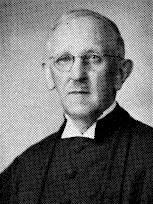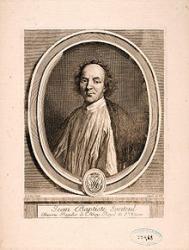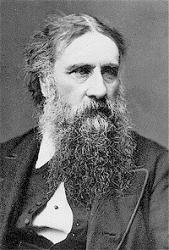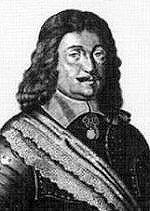Planning worship?
Check out our sister site, ZeteoSearch.org,
for 20+ additional resources related to your search.
- |
User Links
Person Results
J. C. Aaberg

1877 - 1970 Translator of "O Dearest Lord, Receive From Me" in American Lutheran Hymnal Jens Christian Aaberg (b. Moberg, Denmark, 1877; d. Minneapolis, MN, 1970) immigrated to the United States in 1901. Educated at Grand View College and Seminary in Des Moines, Iowa, he entered the ministry of the Danish Evangelical Lutheran Church in America and served congregations in Marinette, Wisconsin; Dwight, Illinois; and Minneapolis, Minnesota. Aaberg wrote Hymns and Hymnwriters of Denmark (1945), translated at least eighty hymns from Danish into English, and served on four hymnal committees. In 1947 King Frederick of Denmark awarded him the Knight Cross of Denmark.
--Psalter Hymnal Handbook, 1987
J. C. Aaberg
Johann Christian Jacobi
1670 - 1750 Person Name: Johann C. Jacobi Translator of "With this New Year We Raise New Songs" in The Cyber Hymnal Jacobi, John Christian, a native of Germany, was born in 1670, and appointed Keeper of the Royal German Chapel, St. James's Palace, London, about 1708. He held that post for 42 years, and died Dec. 14, 1750. He was buried in the Church of St. Paul's, Covent Garden. His publications included :—
(1) A Collection of Divine Hymns, Translated from the High Dutch. Together with their Proper Tunes and Thorough Bass. London: Printed and Sold by J. Young, in St. Paul’s Churchyard; . . . 1720. This edition contains 15 hymns. Two years later this collection, with a few changes in the text and much enlarged, was republished as (2) Psalmodia Germanica; or a Specimen of Divine Hymns. Translated from the High Dutch. Together with their Proper Tunes and Thorough Bass. London: J. Young . 1722. This edition contained 62 hymns, of which 3 ("He reigns, the Lord our Saviour reigns"; "Is God withdrawing"? "Shepherds rejoice") and the first stanza of another ("Raise your devotion, mortal tongues," from "Hosannah to the Prince of Life") were taken from I. Watts. A second part was added in 1725, and was incorporated with the former part in 1732. London, G. Smith. After Jacobi's death the Psalmodia Germanica was republished, in 1765, by John Haberkorn, with a Supplement of 32 pieces.
[George Arthur Crawford, M.A.]
-- John Julian, Dictionary of Hymnology (1907)
Johann Christian Jacobi
Jean-Baptiste de Santeul

1630 - 1697 Person Name: Jean B. de Santeuil Author of "An Image of That Heavenly Light" in The Cyber Hymnal Santeüil, Jean-Baptiste de, was born in Paris of a good family on May 12, 1630. He was one of the regular Canons of St. Victor, at Paris, and, under the name of Santolius Victorinus, was distinguished as a writer of Latin poetry. Many of his hymns appeared in the Cluniac Breviary 1686, and the Paris Breviaries 1680 and 1736, and several have been translated into English, and are in common use in Great Britain and America. He was very jocose in disposition and singular in his habits. When on a journey he died at Dijon, Aug. 5, 1697. His Hymni Sacri et Novi were published at Paris in 1689, and again, enlarged, in 1698. [George Arthur Crawford, M.A.]
--John Julian, Dictionary of Hymnology (1907)
Jean-Baptiste de Santeul
George Macdonald

1824 - 1905 Person Name: George MacDonald Author (portions of stanzas 2, 4) of "From Heaven Above to Earth I Come" in Voices Together Macdonald, George, LL.D., was born at Huntly, Aberdeenshire, Dec. 10, 1824, and educated at King's College, Aberdeen, where he graduated M.A., and from which he afterwards received the honorary degree of LL.D. For a brief time he studied for the Congregational ministry at Highbury College, London, and then became the Minister of the Congregational Church at Arundel, Sussex (1850-53). He afterwards preached for a short time to a small company at Manchester and Bolton. Relinquishing the ministry, he became Lecturer on English Literature at King's College, London, and ultimately gave himself up entirely to literary work. Dr. Macdonald has acquired a great reputation by means of his works of fiction, most of which were originally contributed to magazines, and the most notable of which are David Elginbrod; Robert Falconer; Alec Forbes of Howglen; and Annals of a Quiet Neighbourhood. He was some time Editor of Good Words for the Young, and wrote England's Antiphon for Macmillan's Sunday Library. His poetical works are:—
(1) Within and Without, 1855; (2) The Disciple, and Other Poems, 1860; (3) The Diary of an Old Soul (printed for private circulation), 1867"; (4) Exotics, a volume of translations from the German (most of which first appeared in the Sunday Magazine), 1876; and (5) A Threefold Cord, 1883, part of which previously appeared in his Works of Fancy and Imagination, 10 vols., 1871.
Most of his original hymns were contributed to Hymns and Sacred Songs for Sunday Schools and Social Worship, &c, published by Fletcher and Tubbs, Manchester, in 1855 (2nd. edition, 1856), and of which his brother, and the Rev. G. B. Bubier were the editors. The original hymns, which are signed "G. Macdonald," in this collection are:—
1. A quiet heart, submissive, meek. The Meek inherit the Earth.
2. Daylight fades away. Second Advent.
3. Father, I well may praise Thy name. Sunday Morning.
4. Father, these souls of ours have been. Blessed are the Pure in Heart.
5. If we were longing for the food. Blessed are they that Hunger and Thirst after Righteousness.
6. It was an awful hour that gave. Blessed are the Merciful.
7. Let Thy own voice, 0 Father, say. Blessed are they that mourn.
8. 0 Son of Man, Thy Name by choice. Blessed are the Meek.
9. Our Father, hear our longing prayer. Blessed are the Poor in Spirit.
Some of these hymns were afterwards revised by their author. The next two are from The Disciple, and Other Poems, 1860 :—
10. O God, Whose daylight leadeth down. Evening.
11. O Lord [God] of life, Thy quickening voice. Morning.
Dr. Macdonald's hymns are rich in ideas, but are touched with a mysticism which renders them a little difficult of apprehension. They are however of great value in setting forth truths rarely expressed in hymns, and are likely to grow in favour. [Rev. W. Garrett Horder]
-- John Julian, Dictionary of Hymnology (1907)
=======================
http://en.wikipedia.org/wiki/George_MacDonald
George Macdonald
John Gambold

1711 - 1771 Person Name: John Gambold, 1711-1771 Translator of "Rejoice, Our Nature Christ Assumes" in Hymnal and Liturgies of the Moravian Church Gambold, John, M.A., was b. April 10, 1711, at Puncheston, Pembrokeshire, where his father was vicar. Educated at Christ Church, Oxford, where he graduated B.A. in 1730, M.A. in 1734. Taking Holy Orders, he became, about 1739, Vicar of Stanton Harcourt, Oxfordshire, but resigned his living in Oct. 1742, and joined the United Brethren [Moravians], by whom lie was chosen one of their bishops in 1754. He d. at Haverfordwest, Sept. 13, 1771. He published an edition of the Greek Testament; Maxims and Theological Ideas; Sermons, and a dramatic poem called Ignatius. About 26 translations and 18 original hymns in the Moravian Hymn Books are assigned to him. One or two of his hymns, which were published by the Wesleys, have been claimed for them, but the evidence is in favour of Gambold. A collected ed. of his works was published at Bath in 1789, and afterwards reprinted. [George Arthur Crawford, M.A.]
--John Julian, Dictionary of Hymnology (1907)
John Gambold
Wilhelm II

1598 - 1662 Person Name: Wilhelm II. Duke of Saxe-Weimar Author of "Lord Jesus Christ, Be With Us Now" in Hymnal for Church and Home Wilhelm (II. or IV.), Duke of Sachse-Weimar, son of Duke Johann of Sachse-Weimar, was born in the castle of Altenburg, April 11, 1598. He studied for some time at the University of Jena, devoting himself especially to music and mathematics. On the outbreak of the Thirty Years War he espoused the cause of Friedrich V. of the Palatinate. At the battle of the Weisse Berg, near Prague, he was severely wounded, and at the battle fought near Stadtlohn, in Westphalia (Aug., 1623), he was at first left for dead, and then taken prisoner by Tilly. In 1625 the Emperor allowed him to go free, and he assumed the government of Weimar. When Gustavus Adolphus came to Germany (1630), Wilhelm did not join him till after the battle of Breitenfeld (Sept., 1631), and in July, 1635, he was one of the consenting parties to the Peace of Prague between Saxony and the Emperor, in consequence of which the Swedish troops made various inroads on his territory. When the final partition took place, in 1644, between himself and his surviving brother (Sachse-Weimar fell to Wilhelm, and Gotha to Ernst) he set himself earnestly to restore prosperity and godliness in the regions under his rule. He also found more time (especially after the peace of Westphalia, 1648), to devote to his studies in poetry and music, and to the adornment of Weimar. He died at Weimar, May 17, 1662 (Koch, iii. 110; Wetzel, iii. 426; Bode, p. 172, &c).
Wilhelm joined, in 1617, in founding the Fruitbearing Society, the great German Literary and Patriotic Union of the 17th century; and, after the death (1650) of Ludwig, Prince of Anhalt-Cöthen, became its head. Weimar thus became the centre of its operations, in the direction of which the Duke was assisted by Georg Neumark. Neumark, in his Palmbaum, 1680, p. 449, speaks of the Duke as having "composed several hymns, as well-known in this place, especially the short Hymn of Peace ‘Gott der Friede hat gegeben.'"
Besides this hymn on Peace only one other is known as Wilhelm's, viz.:—
Herr Jesu Christ, dich zu uns wend . Public Worship. This was included as No. 124 in the 2nd edition, 1651, of pt. i. of the Cantionale Sacrum, Gotha (1st ed. 1646), in 4 stanzas of 4 lines, entitled "To be sung before the Sermon." As no author's name is there given, and as it did not appear in any of the three parts of the original edition of 1646-48, the Duke's authorship is decidedly doubtful. So far as yet traced the Duke's name was not attached to it until in the Altdorf Liederfreud of 1676 (Fischer's Supplement, p. 71). In J. Niedling's Handbüchlein, 4th ed., 1655, p. 746, it appears without author's name (Niedling, be it observed, was living at Altenburg), and entitled "A heartfelt petition of pious Christians for grace and the help of the Holy Spirit, during Divine Service, before the Sermon." Koch says it was in the first edition, 1638, of Niedling, but this appears to be merely a guess, for the earliest edition of Niedling which he describes at iii., 109, is that of 1655; and if it were in Niedling's 1638 ed., this circumstance would make the Duke's authorship still more unlikely. Whoever the author was the hymn soon became justly popular, and in 1678 was formally directed to be sung in all the churches in Saxony on all Sundays and festivals. It is a simple and forcible hymn, which survived the Rationalistic period, and is found in all recent German hymn-books, e.g. in the Berlin Geistliche Lieder, ed. 1863, No. 356. Translated as:—
1. Lord Christ, reveal Thy holy Face. In full by J. C. Jacobi, in his Psalter Germanica, 1722, p. 42 (1732, p. 69). Repeated as No. 322 in pt. i. of the Moravian Hymn Book, 1754 (1886, No. 724), and as No. 54 in J. F. Thrupp's Psalms & Hymns, 1853.
2. Lord Jesu, to our prayer attend. This is a good and full translation by A. T. Russell, as No. 12 in his Psalms & Hymns, 1851.
3. Lord Jesus Christ, be present now! This is a good and full translation by Miss Winkworth, as No. 13 in her Chorale Book for England, 1863; repeated in the Pennsylvania Lutheran Church Book, 1868, No. 49.
4. Christ Jesus Lord, to us attend. In full by L. Heyl, as No. 3 in the Ohio Lutheran Hymnal, 1880.
Other translations are:—
(1) "Lord Jesus, turn to us, and down," by Dr. G. Walker, 1860, p. 48. (2) "Lord Jesus Christ, in mercy bend," by Miss Manington, 1863, p. 19. (3) "Lord Jesus Christ, now towards us bend," by N. L. Frothingham, 1870, p. 221. [Rev. James Mearns, M.A.]
-- John Julian, Dictionary of Hymnology (1907)
Wilhelm II
Johann Campanus

1565 - 1622 Author of "Ye Heav'ns, Oh Haste your Dews to Shed" in The Cyber Hymnal Campanus, Johann, was born on June 24, c. 1565, at Wodnian in Bohemia. At the Uni¬versity of Prag (Prague), he graduated b.a. 1592, M.A. 1596. In 1592 he became master at Iglau, thereafter at Teplitz, and then professor at Königingratz. He was in 1596 appointed Rector of the St. Heinrich school, in the Neustadt, Prag, and in 1600 Rector at Kuttenberg. Ultimately he became Professor of Greek and Latin and of Bohemian History in the University of Prag, where he was some time Dean of the Philosophical Faculty, and in 1612 Rector of the University. He died at Prag, Dec. 13, 1622.
Brought up at Wodnian as a Hussite, he became a Lutheran; then a Calvinist; was in 1619 assessor of the Utraquist Consistory of the Teynkirche in the Altstadt, Prag; and on Nov. 16,1622, formally became a Roman Catholic. His Latin Version of the Psalms, pub. at Prag, 1611, and his Latin Odes, Prag, 1612, were introduced for the senior scholars to sing in church and school. A complete ed. of his sacred poems appeared as Sacrarum Odarum Libri Duo. Quorum Prior Psalmos Davidicos, Posterior hymnos Dominicales et feriales continet. Accessere Cantica Canticorum in Odaria liii. nee non Melodiae pro omnibus Psalmis, Odis, & Canticorum Odariist ejusdem Authoris. Frankfurt-am-Main, 1618. [Wernigerode] A full list of his works is given in his Biographie, by G. J. Dlabcz, Prag, 1819.
Two of his poems have passed into English:
i. Borando coeli defluant. Advent. First published in his Odarum Sacrarum. Liber Posterior, Prag,v1612 [Strahow, Prag.], p. 1, "Ode 1, De Adventu Domini” in 5 stanzas of 4 lines, with the heading :—
"Sol Christus est, ros Christus est, hie quern rigat Fovetque, frigus pellit, aestum mitigat."
It appears in a full and good German translated in Johann Franck's Geistliches Sum, 1674, No. 2, (ed. 1846, p. 2), beginning:—
“lhr Himmel tröpfelt Thau in Eil." Franck's version was included in the 1688 (No. 317) and later editions of Crüger's Praxis pietatis melica; in Bunsen's Versuch, 1833, No. 85, and his Allgemeine Gesang-Buch, 1846, No. 29. Bunsen, 1833, p. 878, calls it "One of the most profound hymns of that believing yearning, which recognises in the Incarnation of Christ the pledge of the union of God with the soul." The only translation in common use from Franck is:—
Ye heavens, oh haste your dews to shed, in full in the 2nd Series, 1858, of Miss Winkworth's Lyra Germanica, p. 3. Thence as No. 20 in her Chorale Book for England, 1863, and as No. 15 in Bosworth's Collection, 1865. Stanzas ii.-v. beginning, "O living Sun, with joy break forth," are included as No. 121 in Dr. Thomas's Augustine Hymn Book, 1866.
Another translation is "Descend, ye heavens, in gentle dews," by Dr. G. Walker, 1860, p. 25.
ii. Veni Kedemptor gentium. Advent. Ode ii. of his Liber Posterior ed., 1612, p. 2 (1618, p. 276), in 7 stanzas of 4 lines, headed " Ex hymno Ambrosii.
“Alvus tumescit virginis
Quantum potest vis Numinis."
Two stanzas may be compared with the Ambrosian, viz.:—
"Veni Redemptor gentium,
Pulchrum renide lilium
Splendore fulgens flammeo:
Hie partus est dignus Deo!
vii. 41
Praesepe iam tuum micat,
Lumenque noctis emicat,
Quod nulla lux interpolet
Ut luceat plus quam solet."
A full and good German translation by Johann Franck, beginning " Komm, Heiden-Heiland, Lösegeld," appears in C. Peter's Geistliche Arien, Guben, 1667, No. 1, repeated in his own Geistliches Sion, 1674, p. 1 (ed. 1846, p. 1); and'included in many subsequent collections as the Berlin Geistliche Liedersegen, ed. 1863, No. 1596. The form tr. into English is that in Bunsen's Versuch, 1833, No. 78 (1881, No. 11). Bunsen, doubtless not knowing that it was a direct tr. from Campanus, calls it at p. 878 "the only successful version from the Ambrosian hymn [Veni Redemptor], more profound and delightful than the Latin." Bunsen omits stanzas ii., iii., and alters i., iv. The translations in common use are:—
1. Redeemer of the nations, come. By Miss Wink worth in full from Bunsen in the 1st series of her Lyra Germanica, 1855, p. 186, repeated in her Chorale Book for England, 1863, No. 23, and in Dr. Thomas's Augustine Hymn Book, 1866.
2. Come, Ransom of our captive race. From Bunsen, omitting his stanza iii., as No. 3 in Dr. Pagenstecher's Collection, 1864, signed "F.C.C."
3. O Glory of Thy chosen race. In full from Bunsen by Dr. F. J. A. Hort for Church Hymns, 1871, No. 70, with an added doxology. [Rev. James Mearns, M.A.]
--John Julian, Dictionary of Hymnology (1907)
Johann Campanus
R. Ellis Roberts
1879 - 1953 Person Name: R. E. R. Translator of "An image of that heavenly light" in The English Hymnal Roberts, Richard Ellis, was born in London, Feb. 26, 1879, and now (1906) is a journalist, &c, residing at Dorchester, Oxon. He contributed four translations to The English Hymnal,1906.
--John Julian, Dictionary of Hymnology, New Supplement (1907)
R. Ellis Roberts
David Schubert
b. 1942 Person Name: David Arthur Schubert, 1942- Translator of "From heaven above to earth I come" in Together in Song
David Schubert
William John Downes
1892 - 1987 Translator of "El alt' ĉiela venas mi" in TTT-Himnaro Cigneta An English Congregationalist minister, Downes was a professor of Hebrew and Old Testament at Western College in the University of Bristol (UK), a member of the board of KELI, and a member of the Esperanto Academy, as well as a member of the editorial committee that produced Adoru Kantante. 44 of his works appeared in AK, and 36 in Adoru. Particularly noteworthy for the quantity and quality of his original hymn texts in Esperanto.
William John Downes


 My Starred Hymns
My Starred Hymns


